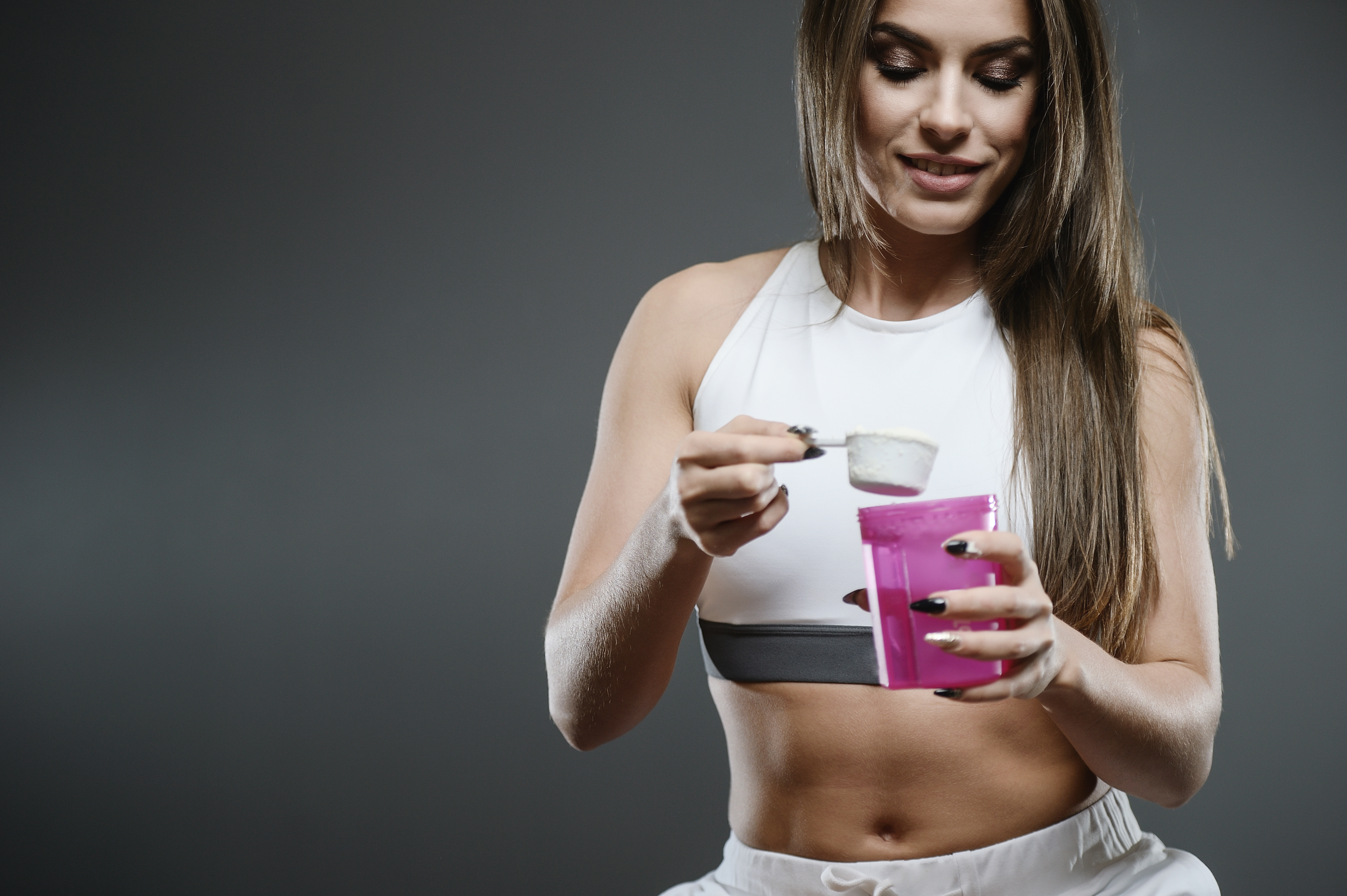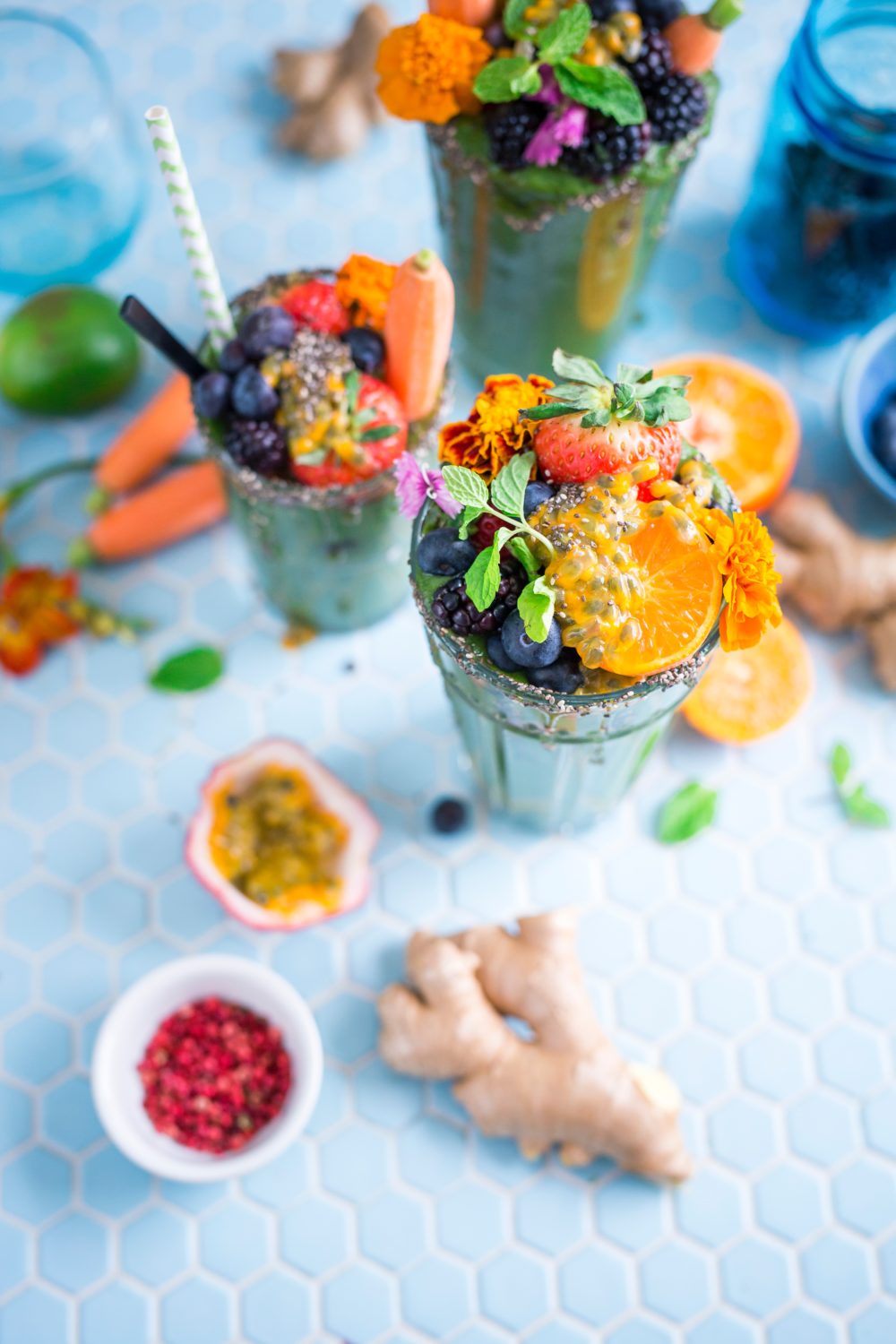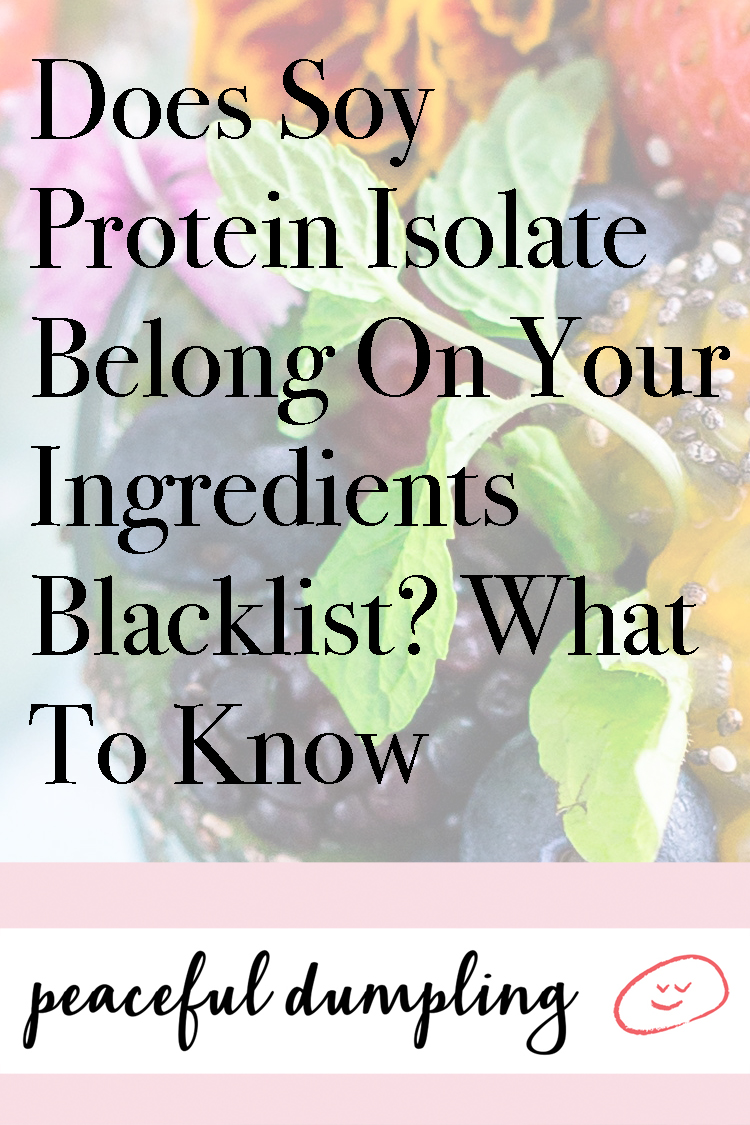
You work out hard—but is your protein supplement working hard for you?
Partially hydrogenated soybean oil. Palm kernel oil. Carrageenan. You know all the usual suspects—the chemicals and other food “derivatives” that lurk in even the healthiest-seeming foods. It doesn’t take an educated eater, especially a vegan, long to come up with her own blacklist of forbidden ingredients, those what you’ll make a special trip to another grocery store to avoid. One, however, that comes up time and time again in the products specially marketed to vegans is Soy Protein Isolate (SPI)—a chemically-engineered soy product that may be doing more harm to your body than good.
“Where do you get your protein?” is the world’s favorite vegan question, and no matter how long you’ve been vegan you’ve likely encountered a desire or impulse to turn to protein supplements and bars like Simply Protein and PROBAR. While these items pack a big punch of 15 g or more of protein per bar, not to mention are super convenient and usually pretty tasty, the SPI that’s front and center in the ingredients list can counteract the beneficial components of the protein itself.

All its debatable effects aside, including an important connection to estrogen and breast cancer, soy has been a remarkably sustainable source of protein for cultures around the world for centuries. In its natural form, the soybean is a nutrition-packed superfood. It first made its way to the U.S. as a way to feed livestock in the 1960s, but as the population and its hungry bellies grew so did the demand for soy-fed animals. In December 2017, it was announced by the Department of Agriculture as the country’s most widely planted crop (83 million acres of it!), outshining the golden ears of corn that used to symbolize Middle America; it was also the top soy producer in the world, growing 40 percent of the supply.
If soy is so ubiquitous, then what’s the problem? The trouble comes when we humans interfere too much with its cultivation and drastically alter the from soy shows up in on our plates. Whereas pure soy like tofu is made directly from fermented beans, SPI goes through two chemically-stripping processes. First, much of the soy we consume is genetically-modified, making the protein itself unequal to its natural counterparts. Then, the “isolate” part of SPI occurs when all that good protein is pulled out in a chemical process that leaves behind harmful extras like hexane, nitrates, and aluminum; but just like antibiotics kill of all bacteria in your body and not just the harmful ones, this isolating process means the amino acids and vitamins found in soy go bye-bye. So what you’re left with is a highly concentrated form of soy that’s loaded with more carcinogens than we feared soy alone was years ago. Certain SPI relatives like TVP are actually lesser forms of protein, whereby the heat used to make them denatures them.
Thankfully, there are plenty of SPI-free protein sources out there we vegans (and non-vegans) can enjoy without fear. Always look for GMO-free labels, and when you do use protein powders, shakes, or bars choose soy-free versions like nutritionist-approved GoMacro bars or Vega to avoid any funny business. The easiest way, though, is to always go for natural, fermented sources of soy—tofu, soy milk, tempeh—or straight-up from the pod (who doesn’t love a steaming bowl of salted edamame?).
 If you’re curious to know more about how we got to this place on our soy journey, and how to get back on track, explore Dr. Cate Shanahan’s Deep Nutrition, a thorough exploration of the world’s healthiest cultures and why their back-to-nature diet has kept them healthy.
If you’re curious to know more about how we got to this place on our soy journey, and how to get back on track, explore Dr. Cate Shanahan’s Deep Nutrition, a thorough exploration of the world’s healthiest cultures and why their back-to-nature diet has kept them healthy.

Do you avoid SPI? What’s your favorite source of protein?
Also by Jennifer: Curate This Essential Oil Starter Kit & Let Aromatherapy Work Its Magic In Your Life
Related: Fuel Yourself Like A Pro With Meals & Fav Plant Proteins Of These 4 Vegan Athletes
These 5 Delicious Vegan Protein Powders Are *Way* More Than Just Protein
Get more like this—Subscribe to our daily inspirational newsletter for exclusive content!
__
Photos: Adobe Stock, Brooke Lark on Unsplash, Pexels
